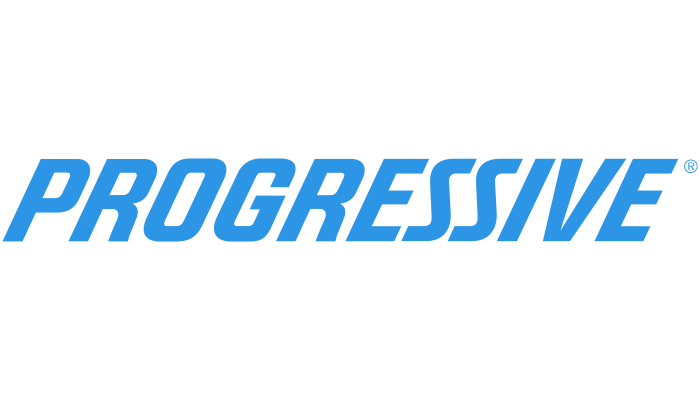The Best Cheap Renters Insurance in New York City
State Farm has the cheapest renters insurance in NYC, at $10 per month for $30,000 of personal property coverage on average.
Compare Renters Insurance Quotes in NYC
Best Cheap Renters Insurance in NYC
ValuePenguin editors compared top companies by looking at average costs, customer service reputation, coverage and discounts.
Our experts collected dozens of quotes from six top renters insurance companies in New York City.
Cheapest renters insurance companies in NYC
State Farm offers the most affordable coverage for renters in New York City.
The company charges an average of $10 per month for $30,000 of personal property coverage. That's 40% cheaper than the NYC average of $18 per month.

Compare cheap renters insurance in New York City
Lemonade also offers affordable coverage, at $11 per month on average. The company takes a digital-first approach to selling insurance and handling claims. That makes Lemonade a good choice for those who value convenience and only need basic coverage.
Cheapest renters insurance companies in New York City
Company | Monthly cost | ||
|---|---|---|---|
| State Farm | $10 | ||
| Lemonade | $11 | ||
| Allstate | $21 | ||
| Assurant | $22 | ||
| Amica | $25 | ||
Best NYC renters insurance for most people: State Farm


-
Cost$10/moThis analysis used home insurance quotes for all five NYC boroughs. Read our methodology.
Best renters insurance for online experience: Lemonade


-
Cost$11/moThis analysis used home insurance quotes for all five NYC boroughs. Read our methodology.
Best renters insurance in New York City for extra coverage: Progressive


-
Cost$25/moThis analysis used home insurance quotes for all five NYC boroughs. Read our methodology.
NYC renters insurance: Costs by borough
Manhattan has the most expensive renters insurance quotes of NYC's five boroughs, at $23 per month for $30,000 of personal property coverage on average.
Staten Island has the cheapest average rates in NYC, at $16 per month.
Your renters insurance rate depends in part on where you live. Factors like crime rates, natural disasters and the cost to replace or repair common household items can all influence how much you pay for coverage.
City | Monthly rate | % from average |
|---|---|---|
| Bronx | $18 | 0% |
| Brooklyn | $18 | -3% |
| Manhattan | $23 | 25% |
| Queens | $16 | -10% |
| Staten Island | $16 | -12% |
How to get cheap renters insurance in NYC
Get the best rate on your NYC renters insurance by shopping around and using discounts.
Comparing quotes can help you cut your monthly rate by more than half. The most expensive renters insurance in NYC, Progressive, charges roughly two and a half times as much as the cheapest company, State Farm.
Cheaper companies don't necessarily have worse service or coverage. For example, State Farm has a strong customer service reputation and the cheapest rates in New York City.
Most major renters insurance companies in New York City offer one or more discounts. Many of these discounts are easy to qualify for. For example, you may be eligible for a claims-free discount if you haven't filed a renters insurance claim in the past few years.
In addition, several major renters insurance companies let you save if you bundle your renters and auto policies through the same company.
Other common ways to save include discounts for buying online, paying for your policy upfront and signing up for electronic notifications.
Common natural disasters for renters in NYC
NYC renters may need to get coverage for their property for severe storms and floods.
Nor'easters and other powerful storms are some of the most common natural disasters that New York City renters should watch out for. Fortunately, a regular renters insurance policy will pay for storm and wind damage.
It's important to remember that renters insurance will pay to repair or replace the items you own. Your landlord's insurance covers the building you live in. That means if a hurricane causes your apartment to lose power, your renters insurance may cover the spoiled food in your refrigerator. However, your policy would not pay to repair wind damage to your apartment or rented home's roof, windows and outside walls.
Flood coverage for New York City renters
A standard renters insurance policy won't pay for flood damage.
If you live in a ground floor or basement unit in a flood-prone part of the city, consider buying flood insurance for renters. Coverage is typically cheap and you may qualify for a multiline discount if you buy your flood and renters insurance through the same company.
The FEMA (Federal Emergency Management Agency) website has a flood map tool that lets you find your risk level. Those who live in low-lying areas close to large bodies of water like the banks of the Hudson River and New York Bay tend to be at greater risk of flooding than people living further inland.
New York renters insurance trends
Renters insurance prices have gone up 17.0% in New York over the last six years.

New York renters insurance rates went up between 1.5% and 64.6% over the last six years, depending on the major company.
Among NY insurers, the biggest increases have been at Chubb (64.6%), Farmers (47.1%) and PURE insurance (33.2%).
Renters insurance rate change data was compiled using RateWatch from S&P Global, which uses information from the National Association of Insurance Commissioners (NAIC).
Frequently asked questions
Who has the best cheap renters insurance in NYC?
has the best cheap renters insurance in NYC. The company has the lowest average rates in the city, at $10 per month for $30,000 of personal property coverage on average.
How much is renters insurance in NYC?
Renters insurance in NYC costs $18 per month for $30,000 of coverage to replace the items you own, called personal property coverage. Coverage costs differ by borough. Staten Island has the lowest average rates while Manhattan has the highest.
Can a landlord require renters insurance in New York?
Yes, a landlord in New York City can require that you buy renters insurance as part of your lease agreement.
Methodology
ValuePenguin collected dozens of quotes from across New York City's five boroughs for an unmarried 30-year-old woman with no claims history. Coverage limits include:
- $30,000 of personal property coverage
- $9,000 for loss of use
- $500 deductible
- $100,000 of personal liability
- $1,000 of medical payments to guests
Customer service ratings were created using cost data, information from the National Association of Insurance Commissioners (NAIC) complaint index scores and J.D. Power's 2023 renters insurance customer satisfaction study rankings.
These rates should be used for comparative purposes only. Your quotes may differ.
About the Author
Senior Writer
Talon Abernathy is a ValuePenguin Senior Writer who specializes in health insurance, Medicare and Medicaid. He's also contributed to other insurance verticals including home, renters, auto, motorcycle and flood insurance.
Talon came to ValuePenguin in 2023. Since his arrival, he's helped to expand the site's health insurance-related content offerings. He enjoys helping readers understand the ins and outs of America's all too complicated health insurance landscape.
Before coming to ValuePenguin, Talon worked as a freelance writer. His prior work has touched on a broad range of personal finance-related topics including credit-building strategies, small business incorporation tactics and creative ways to save for retirement.
Insurance tip
In many parts of the country, you can qualify for a free Silver health insurance plan if you meet certain income requirements. Government subsidies in the form of premium tax credits and cost-sharing reductions may mean you'll pay nothing for coverage.
Expertise
- Health insurance
- Medicare and Medicaid
- Flood insurance
- Homeowners insurance
- Renters insurance
- Auto and motorcycle insurance
Referenced by
- The Miami Herald
- Money.com
- MSN
- Nasdaq
- The Sacramento Bee
- Yahoo! Finance
Education
- BA, University of Washington
- Certificate in Copyediting, UC San Diego
Credentials
- Licensed Life & Disability Insurance Agent
- Licensed Property & Casualty Insurance Agent
Editorial Note: The content of this article is based on the author’s opinions and recommendations alone. It has not been previewed, commissioned or otherwise endorsed by any of our network partners.








